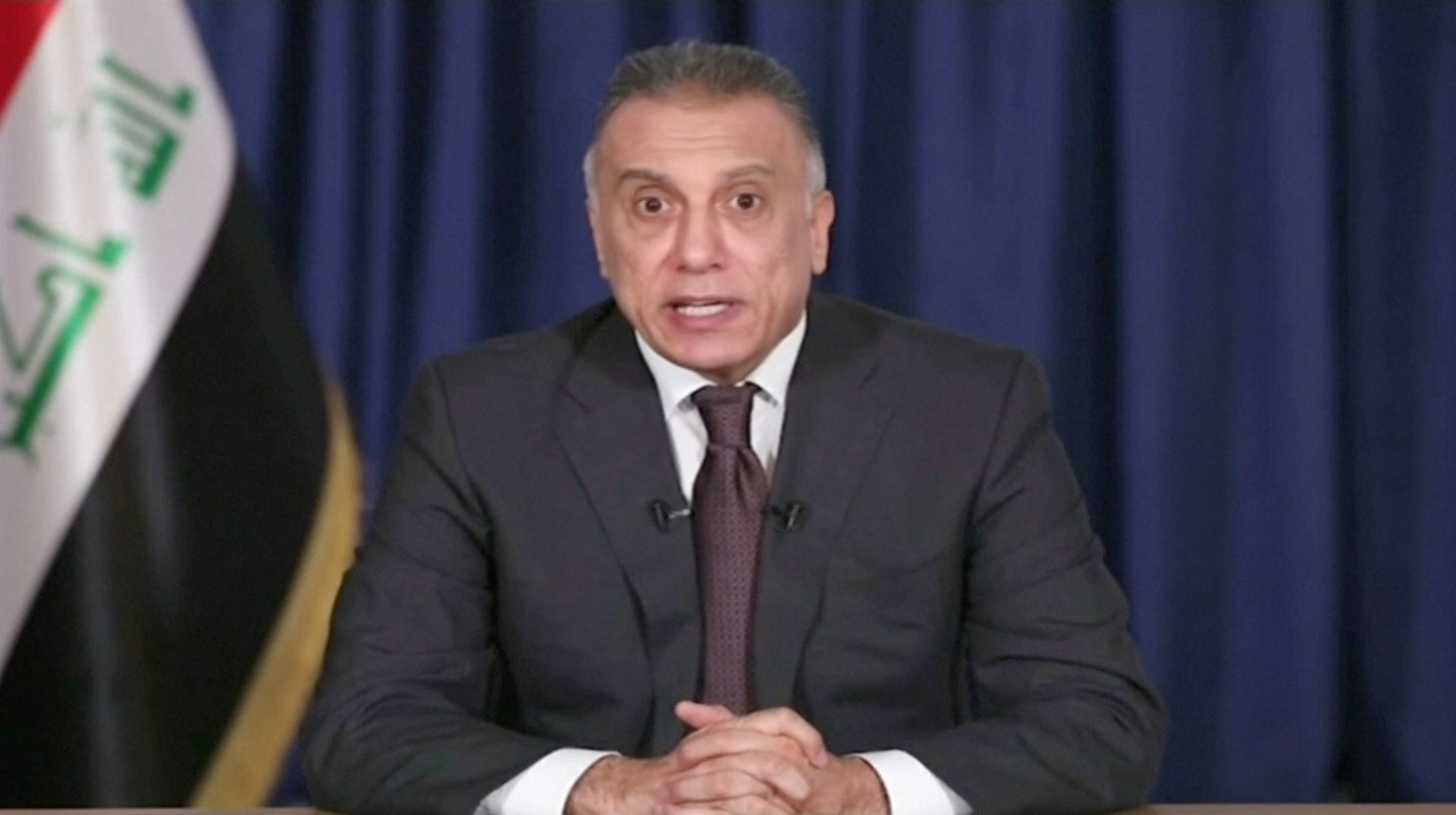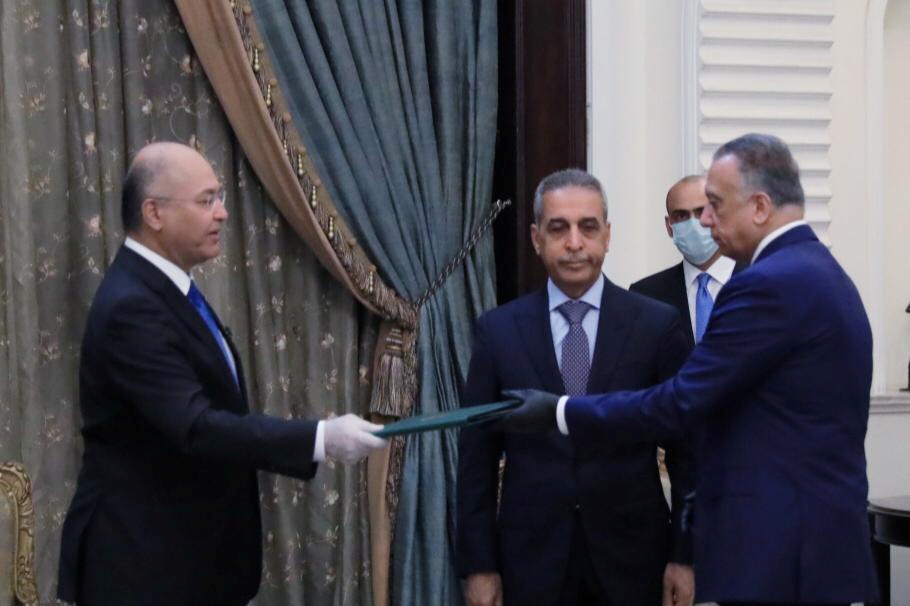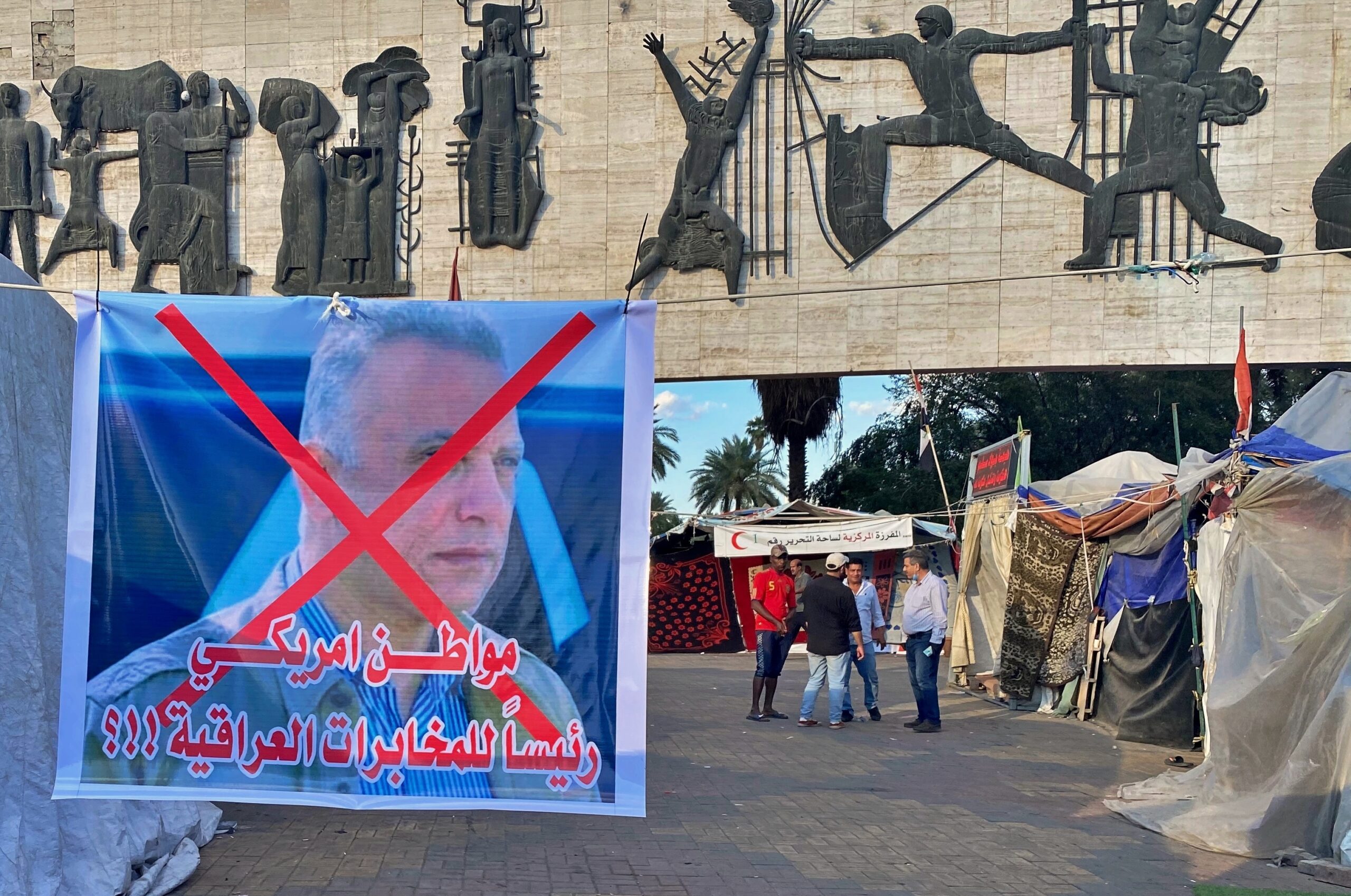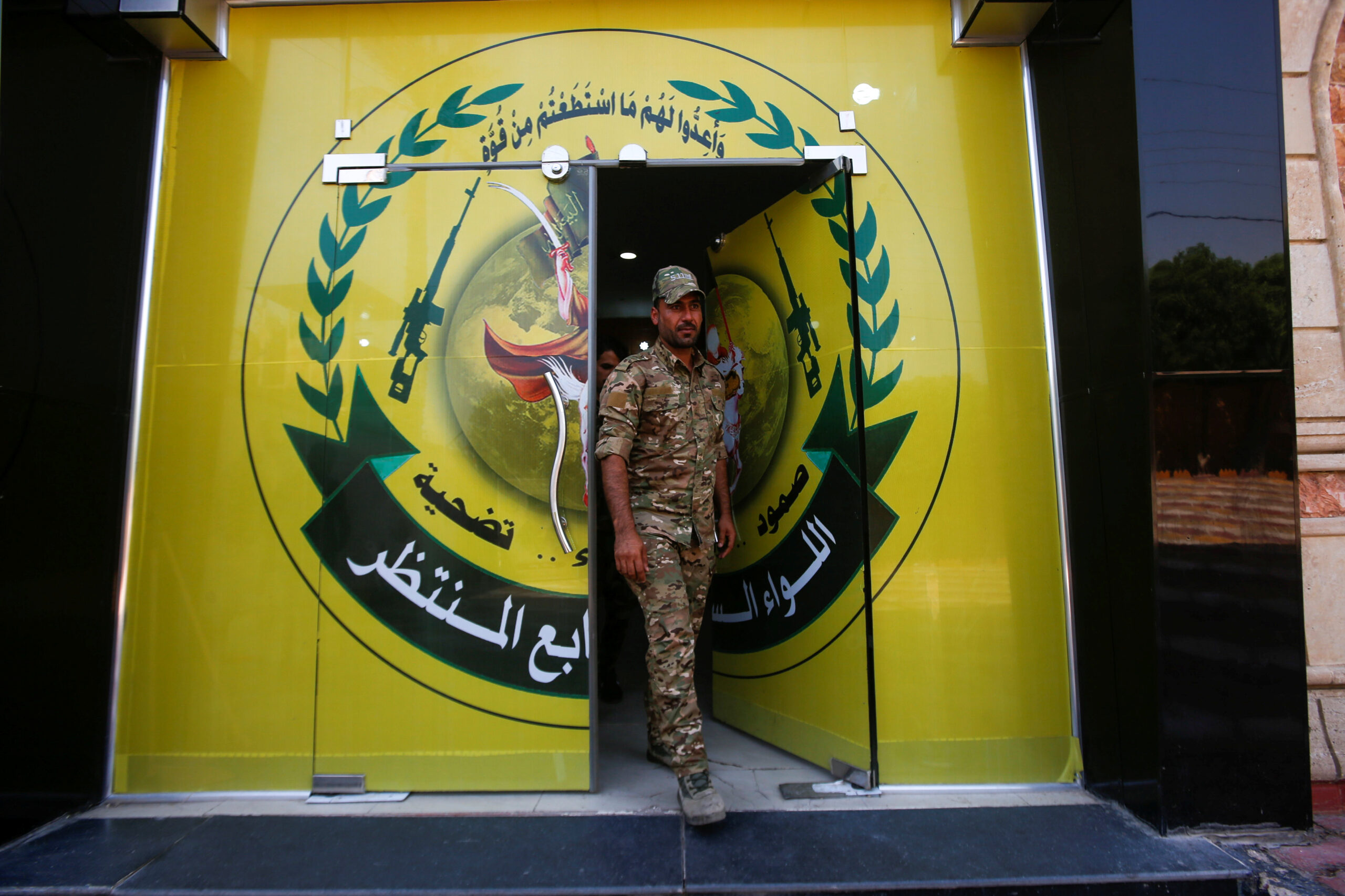“The Lesser of Two Evils”: Quds Force Commentary on Iraq’s Prime Minister-Designate
For reasons of self-interest, Islamic Revolutionary Guard Corps Quds Force officers are trying to persuade Iran's Iraq allies to support Prime Minister-designate Mustafa al-Kadhimi.

As Iraqi Prime Minister-designate Mustafa al-Kadhimi approaches a likely vote in Parliament to approve Iraq’s new Cabinet, the government-censored media in neighboring Iran has surrendered much of its Iraq analysis to prominent officers from the Islamic Revolutionary Guard Corps Quds Force, which is responsible for extraterritorial operations. What do Quds Force officers turned Iraq experts say, and who are they trying to reach? Statements from Iran’s ambassador to Baghdad and his predecessors, all of whom are senior Quds Force officers, and commentary from IRGC mouthpieces indicate that the Quds Force, for reasons of self-interest, is trying to persuade its Iraqi allies to support Kadhimi despite the opposition of several pro-Iran militia groups. Iranian commentators also appear to be urging Tehran’s Iraqi allies to support Kadhimi in the face of the social, political, and economic challenges he or any other prime minister would face in Iraq.
Quds Force support for Kadhimi manifested during Brigadier General Ismail Qaani’s first official visit to Iraq as Quds Force commander in late March. At the time, unnamed Iraqi sources said Qaani expressed Tehran’s opposition to Prime Minister-designate Adnan al-Zurfi. Qaani’s activities can be interpreted as early support for other potential candidates, including Kadhimi, who had appeared on several lists of potential prime ministerial candidates but had not been chosen.
The reason behind Qaani and the Quds Force support for Kadhimi became increasingly apparent in the initial commentary on Iraqi President Barham Salih’s April 9 nomination of Kadhimi as prime minister-designate. That day, Hassan Hanizadeh, Middle East expert close to the IRGC, described Kadhimi as “the lesser of two evils,” compared to Zurfi, who was depicted in the Iranian media as a U.S. agent. On April 16, Seyyed Hadi Afqahi, another Middle East expert, was quoted by IRGC-mouthpiece Basirat describing Kadhimi in those same words, while praising his pragmatism. “He has, from the very beginning, tried to strike a balance between Americans and Iranians and he has, to some extent, succeeded in doing this.”
Iraj Masjedi, Iranian ambassador to Baghdad and Quds Force officer, probably shared the analysis but, as expected from a diplomat, said on April 10 that Iran would “respect and support any prime minister who receives a parliamentary vote of confidence.” Masjedi also cautiously praised the nomination of Kadhimi as “a positive deed.”
The ambassador’s statements were followed on April 11 by a warmer expression of support from Hassan Danaeifar, former ambassador to Baghdad and Masjedi’s fellow Quds Force officer. On April 13, Danaeifar gave a carefully worded interview explaining what could be expected from Kadhimi regarding the strategic dialogue between Iraq and the United States, withdrawal of the U.S. military from Iraq, plummeting oil prices, and the fight against the coronavirus. Danaeifar’s statements appear to be an attempt to recognize the social, political, and economic trials any new prime minister would confront in Iraq.
While Danaeifar’s statements were probably addressed to Iran’s allies in Iraq, on April 18, Hassan Kazemi Qomi, another former ambassador to Baghdad and Quds Force officer, appeared to address Kadhimi directly in an interview with Tasnim News Agency. Qomi emphasized Iraq “must be an independent country in charge of its national sovereignty,” warned the United States “will do its utmost to sustain its presence in Iraq,” and concluded that “America will not leave Iraq voluntarily.”
On April 29, Danaeifar once again came to the defense of Kadhimi, who at the time appeared to face increasing parliamentary resistance to his proposed Cabinet ministers. In an interview with the Borna News Agency, Danaeifar said: “In my opinion, one must still wait with regard to the situation in Iraq … Forming a Cabinet and selecting ministers is not an easy task, taking circumstances into consideration.” He ended the interview by saying it is too early to conclude Kadhimi has reached “a dead end.”
Early commentary on Kadhimi as the “lesser evil” appears to have been a reflection of the Quds Force perception of the prime minister-designate. Tehran clearly wanted to avoid Zurfi, the greater “evil,” and tolerated Kadhimi, the independent candidate.
The Quds Force officers were probably just as genuine in their support for Kadhimi but for more pragmatic reasons: considering the various challenges Iraq is facing, chances for any prime minister’s success are limited. Why would the Quds Force exhaust whatever goodwill it may have among its supporters in Iraq by trying to impose a candidate more closely aligned with Iran and more supportive of Iran’s militia partners in Iraq but who risks failure under current circumstances? By supporting the independent Kadhimi, the Quds Force helped sideline Zurfi but will not be held responsible if the new prime minister collapses under the weight of these challenges.
Just as important are the references to Kadhimi’s “pragmatism” in IRGC commentary. Had the Quds Force managed to install a pro-Iranian prime minister, Tehran could not have expected any cooperation from Washington concerning sanction waivers to Baghdad and may even have risked the loss of U.S. assistance to Iraq. For Tehran, the lesser of two evils is still evil, but tolerable if the circumstances are taken into consideration.
The views represented herein are the author's or speaker's own and do not necessarily reflect the views of AGSI, its staff, or its board of directors.




















